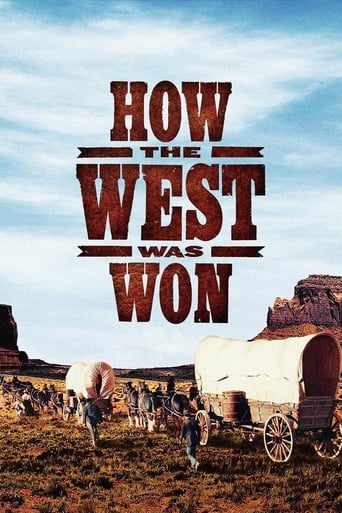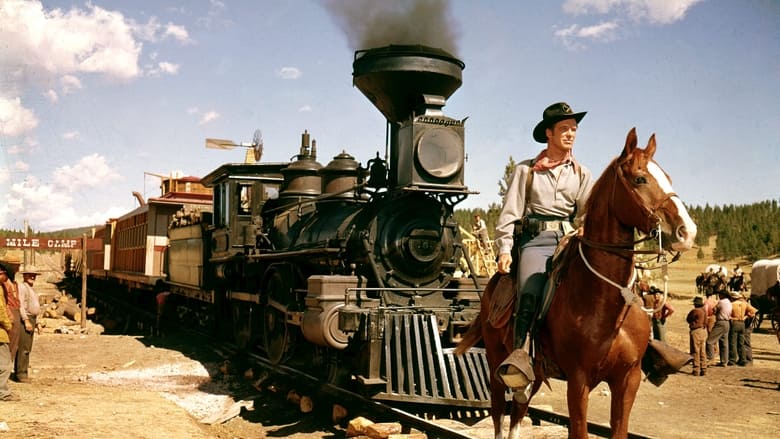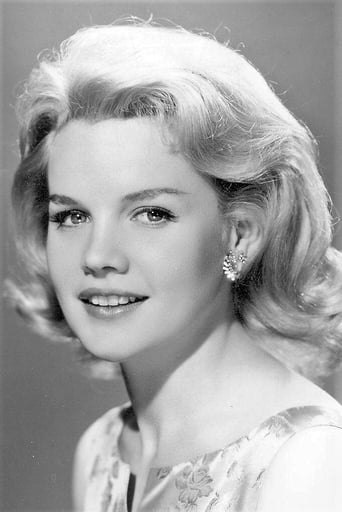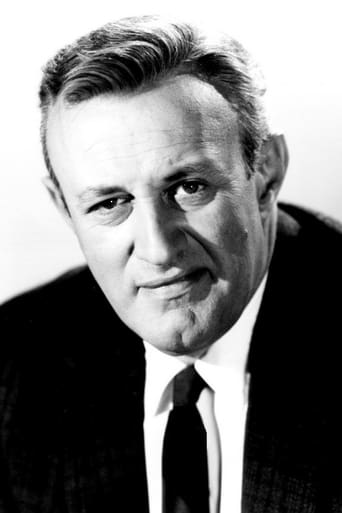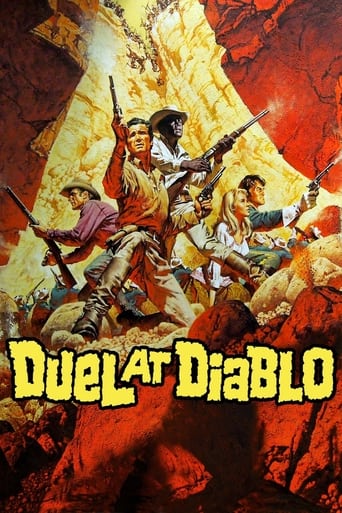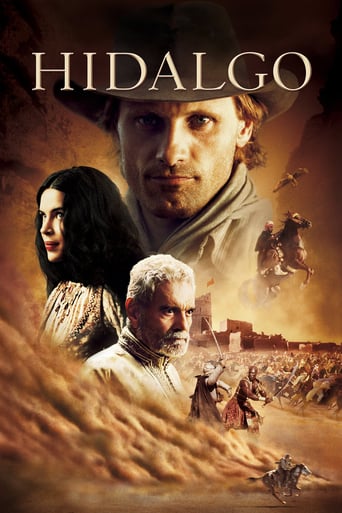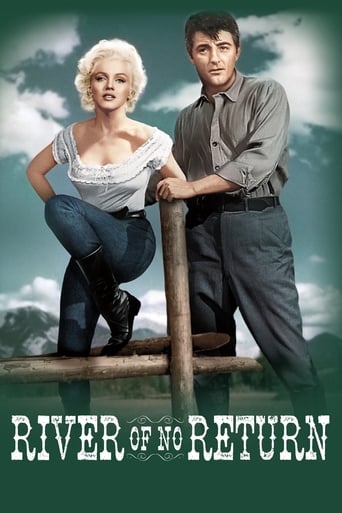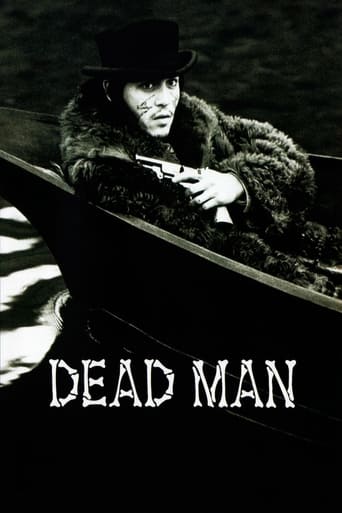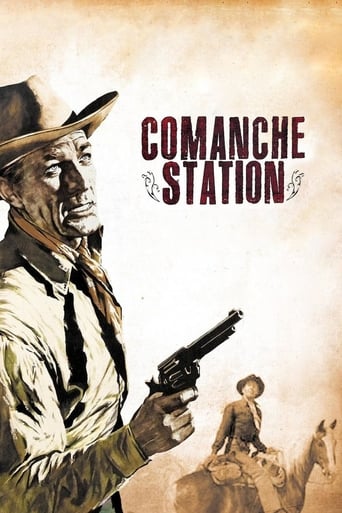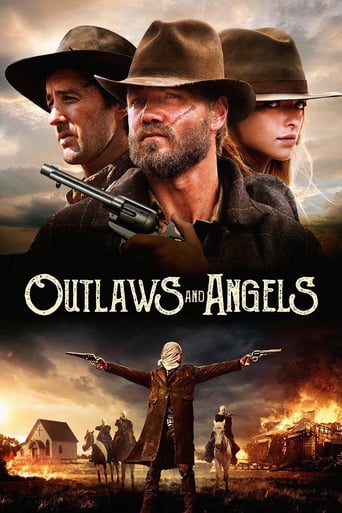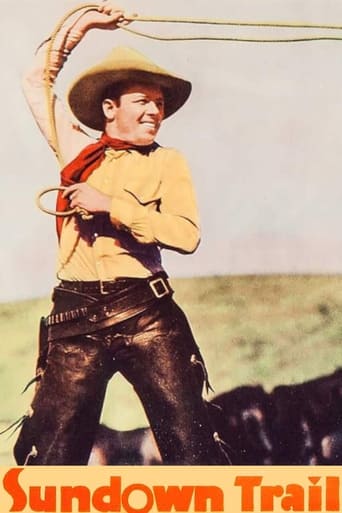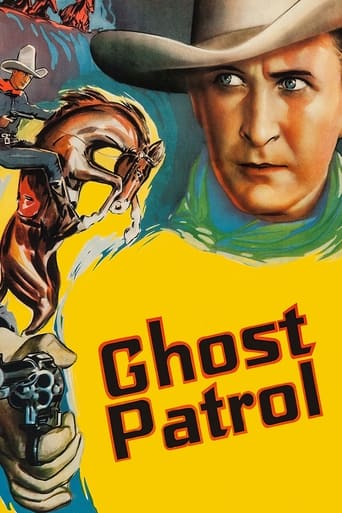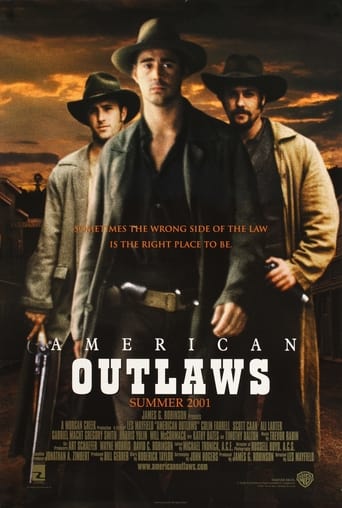How the West Was Won (1963)
The epic tale of the development of the American West from the 1830s through the Civil War to the end of the century, as seen through the eyes of one pioneer family.
Watch Trailer
Cast


Similar titles
Reviews
This epic Cinerama film begins with a flyover over shot of cloud- shrouded Rocky Mountains; narration is provided by Spencer Tracy throughout, to connect its disparate storyline.Debbie Reynolds is the only character that survives from beginning to end. She's part of the Prescott family, headed by Karl Malden and Agnes Moorehead, who ventures west after having a tough time of it farming 'rocks' in the east. On their journey – they make it as far as Ohio – the family encounters a rugged individualist fur trapper Linus Rawlings (James Stewart) who's headed back to Pittsburgh to trade his wares and live it up. Oldest daughter Eve (Carroll Baker) falls for him, especially after they're both (separately) accosted by but (together) survive a band of pirates (led by Walter Brennan; Lee Van Cleef appears uncredited).When Eve's parents die while unsuccessfully navigating the rapids of the river, Linus realizes that he loves her enough to give up his wild-side for farming. Reynolds plays the other Prescott daughter Lily; she sings and dances all the way to San Francisco, eventually.Along the way, Lily encounters a clumsily romantic wagon-master (Robert Preston), teams up with a would-be pioneer woman (played by Thelma Ritter!), and finally falls for and marries a gambler- opportunist (Gregory Peck). The narrative includes a Civil War segment that features Raymond Massey as Abraham Lincoln (naturally), Henry 'Harry' Morgan as General Ulysses S. Grant and John Wayne as General William Tecumseh Sherman.This segment begins with George Peppard, playing Eve's oldest boy, leaving home to join his father in the fight and becoming disillusioned about the 'glory' of war. After saving Grant from assassination by a Confederate deserter (Russ Tamblyn), Peppard's character continues west where he encounters a mountain man-buffalo hunter that had been one of his father's friends (Henry Fonda). Reluctantly, the two become involved in helping a hard-driving Union Pacific boss (Richard Widmark) negotiate a ceasefire with the Arapaho Indians in order to allow the transcontinental railway to continue its march westward.Later, after Peppard's character has married (Carolyn Jones) and begun a family while serving as a lawman, he finally meets his aunt Lily, who'd traveled - after her husband's death and bankruptcy - from Nob Hill to Arizona. But before settling down on their ranch, he has one last score to settle with a train robber (Eli Wallach); Lee J. Cobb and Mickey Shaughnessy play a Marshal and Deputy, respectively.Nominated for eight Academy Awards including Best Picture, it won three: Editing, Sound and Writing, Story and Screenplay - Written Directly for the Screen (James R. Webb, his only Oscar recognition) and was added to the National Film Registry in 1997. Its Score, which was also nominated, appears at #25 on AFI's Top 25 Film Scores list. It was directed by John Ford, Henry Hathaway and George Marshall.Watching it again for this review, it's hard to ignore the 'strangeness' of Cinerama's widescreen experience. Even though the film has been significantly improved since I first saw it (the vertical lines of its three screen projection have all but disappeared completely with its remastering) on TCM years ago, the 'hokey' camera setups that the process necessitated – which also made close-ups impossible – were very distracting. Still, many of these visually contrived sequences are stunning AND the new Dolby surround- soundtrack is quite excellent too. Plus, I do highly recommend Cinerama Adventure (2002), the very informative documentary included with this movie's Three-Disc Special & Ultimate Collector's Editions.
Released in 1962-63 and written by James Webb, "How the West was Won" is an epic Hollywood Western covering fifty years between 1839-1889 focusing on the Prescott family's move West and narrated by Spencer Tracy. This is a history lesson amped up with melodrama, romance, adventure, violence and song & dance.The film was done in Cinerama, which was a short-lived cinematic experiment involving three synchronized projectors and a huge curved screen. Only one other film utilized this process, "The Wonderful World of the Brothers Grimm," released the same year. Cinerama was invented so film could keep ahead of its growing rival, television, but it proved too expensive and cumbersome. Despite this, "How the West was Won" was a huge success at the box office.There were epic Westerns before and after, of course (1958's "The Big Country," 1960's "The Alamo," 1990's "Dances with Wolves" and 1994's "Wyatt Earp"). What separates "How the West was Won" is that it's split into five vignettes directed by three different directors, as follows:THE RIVERS (1839), directed by Henry Hathaway. This opening segment may turn off viewers with its eye-rolling "Disney Goes West" vibe and the corresponding corny dialogue, particularly the lightning fast romance that starts between Linus Rawlings (James Stewart) and Eve Prescott (Carroll Baker). But, if you can endure past such cringe-worthy moments, there's a sudden shift when the travelers run into a malevolent gang of river pirates (Walter Brennan, Lee Van Cleef and cutie Brigid Bazlen). The switch from quaint Disney-esque family-friendly material to nigh shocking violence is notable. One villain gets an ax wung into his back (!). The episode ends with a thrilling fatal rafting sequence. Karl Malden plays the patriarch while Debbie Reynolds plays the less-romantic sister. I must say that the producers knocked it out of the ballpark by featuring Baker, Reynolds and Bazlen in the female department; all three are breathtaking.THE PLAINS (1851), directed by Henry Hathaway. Lilith Prescott (Reynolds) ends up in St. Louis as a dance hall performer where she learns she's inherited a gold mine in California. A handsome gambler (Gregory Peck) catches wind and tags along on the wagon train, led by the great Robert Preston. Both guys want the babe, but only the latter seems sincere, which curiously doesn't interest Lilith. This segment is highlighted by Reynold's beauty and her entertaining song & dance sequences and a thrilling Cheyanne attack on the wagon train.THE CIVIL WAR (1861-1865), directed by John Ford. This segment starts at the Prescott homestead in Ohio where the son of Lilith, Zeb (George Peppard), decides to join the Civil War, after his dad did a couple of years earlier. This is the weakest of the vignettes because the scenes where Ulysses Grant (Harry Morgan) and General Sherman (John Wayne) hang out are obviously studio bound and, worse, the Shiloh battle sequence is almost non-existence. What a letdown! THE RAILROAD (1868), directed by George Mashall. After the war Lieutenant Zeb gets a gig in the U.S. Cavalry, trying to maintain peace with the Indians while befriending grizzled buffalo hunter Jethro Stuart (Henry Fonda), but Zeb becomes disillusioned when an arrogant railroad mogul (Richard Widmark) violates treaties with the Arapaho by building in their territories. The Natives retaliate by stampeding bison through the railroad camp and killing many. It's an impressive sequence.THE OUTLAWS (1889) directed by Henry Hathaway. Widowed, Lilith moves from San Francisco to her remaining asset, an Arizona ranch, inviting Zeb (Peppard) and his wife (Carolyn Jones) & kids to oversee it. But Marshal Zeb is threatened by a vengeful outlaw (Eli Wallach). Instead of waiting for the thug to strike, Zeb goes on the offensive with the help of reluctant Marshal Lou Ramsey (Lee J. Cobb). They hide out on a train with an unusually large gold shipment to ambush the outlaw and his gang. The exciting climax is impressive for its time and obviously influential in action-oriented cinema.As you can see, the movie isn't built around characters or a unifying plot, but rather a series of thinly-connected stories with a few characters carrying over to other segments (Baker, Reynolds, Peck, Peppard). It's a big film rather than a great one. But you have to respect its uniqueness and the fact that it pulls out all the stops to entertain on so many levels. The score by Alfred Newman, for instance, is one of the all-time best film compositions. While the movie sometimes disappoints—particularly the opening "Disney goes West" vibe and the truncated Civil War sequence—there's just too much good here to give it a bad grade. You just have to be willing to acclimate to its quirks and uniqueness. Needless to say, don't expect a conventional Western because "How the West was Won" is anything but.The film runs 164 minutes and was shot in Kentucky & Illinois in the East; and South Dakota, Utah, Arizona, California and Oregon in the West .GRADE: B
Good historic-drama. Incredibly ambitious, to incorporate the entire history of the United States' exploration and development of the west through a family history. However, the movie's reach exceeds its grasp. The linkages between the generations of characters and US history sometimes seems contrived and trite. With so much ground to cover, some events are skimmed over.The whole thing just doesn't gel as well as it should. Might have something to do with the fact that each set of characters is treated as a separate story, almost entirely different from the others, and has a different director (John Ford, George Marshall, Henry Hathaway)Probably the best reason to watch is for the all-star cast: James Stewart, Gregory Peck, Henry Fonda, John Wayne (miscast as General Sherman), Debbie Reynolds, George Peppard, Richard Widmark, Karl Malden, with narration by Spencer Tracey.
Spectacular. Loved Debbie Reynolds' songs and dances, but there were not enough of them. Not enough John Wayne, Henry Morgan or Henry Fonda. Agnes Moorehead and Carolyn Jones small parts; little dialogue. Didn't like seeing Gregory Peck as a sort-of bad guy. Thelma Ritter hilarious as always. I liked her in her dress-up outfit. Walter Brennan turning out to be a bad guy was a disappointment. Don't get me wrong. It took me forever to see this movie. Was looking forward to it. finally getting to see it. Enjoyed it. More comments: buffalo stampede ingenious. Plucky Debbie Reynolds on a raft; later singing and dancing, reminding one of "Unsinkable Molly Brown". Jimmy Stewart looking like a nasty old goat. Henry Fonda looking a sight better. Debbie teaching the kiddies how to play poker.Primitive man -- not. To them, they were an a-number-one civilization who were encroached by young U.S. and its post-civil always-westward mentality -- complete with army to keep things moving. Pony express first encroaching, then railroads. Today, email is way faster than snail mail or pony express, and people travel by aircraft over vast expanses of the West.

